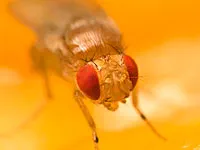
Fruit flies may be small, but they can be incredibly frustrating. They’re drawn to anything ripe, rotting, or fermenting, making your kitchen the perfect breeding ground if you're not careful. Whether it’s fruit, vegetables, or anything else giving off the scent of fermentation, fruit flies will find it. Studies have shown that bananas are attractive to them. So, if you’re a fan of bananas, here are a few simple steps you can take to keep these pesky flies out of your home.
What Are Fruit Flies?
Fruit flies are common household pests found in places like kitchens, restaurants, grocery stores, and anywhere that food is exposed. They’re especially drawn to the sugars in fermenting fruits and vegetables, but they also have a taste for beer, wine, ice cream, and even fermenting flour.
These flies don’t live long, but they multiply fast. A single female can lay hundreds of eggs, which hatch in as little as 15 hours. From egg to adult, a fruit fly can fully mature in just about a week. That means if you spot one, there are likely many more nearby.
How to Prevent a Fruit Fly Infestation
Eliminate Attractants
Get rid of any ripe, overripe, or damaged fruits and vegetables as soon as possible. If you’re not going to eat them right away, store them in the fridge or toss them out. Fruit flies may lay eggs inside produce, so even one bad apple can quickly lead to a swarm.
Seal Up Food Properly
Keep your food in sealed containers or covered with wraps to reduce the scent of fermentation. Cutting off their access to food is one of the easiest ways to prevent them from hanging around your home.
Take Out the Trash Regularly
Even if you throw away spoiled food, the job isn’t done. Fruit flies can still find and feed on leftovers in your garbage or recycling bin. Empty your trash frequently and clean out the bins regularly to prevent the buildup of juices or residues that attract flies.
For homeowners with fruit flies, it’s essential to identify the source, eliminate it, and thoroughly clean the affected area. For businesses like restaurants, professional consultation may be necessary to help identify the root cause of the issue.